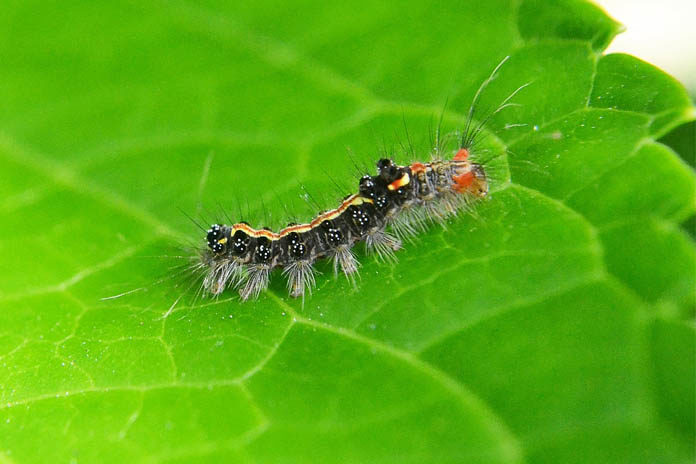
Garden Pests Identification is essential because these pests can chew on plants and damage your garden. These are some of the common garden pests. After proving that gardening is good for health now its time to keep your garden healthy.
Also Read: 9 Easy Ways for Container Vegetable Gardening
Spider Mites
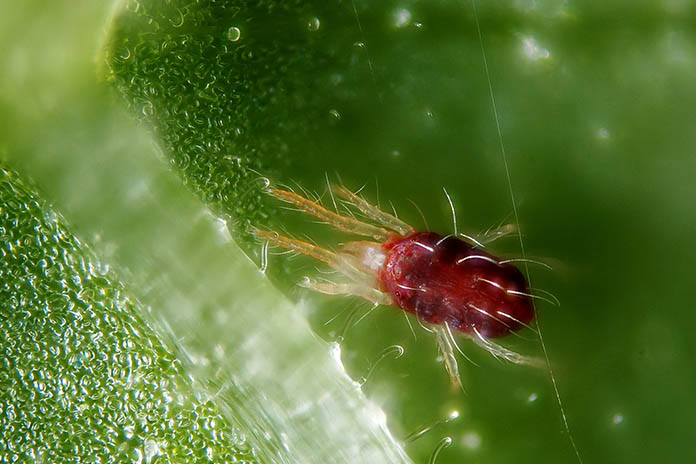 Spider mites are common garden pests that thrive well in hot, dry, and dusty conditions. Residing on the undersides of the leaves of plants, these mites congregate in dense colonies in protective silk webs.
Spider mites are common garden pests that thrive well in hot, dry, and dusty conditions. Residing on the undersides of the leaves of plants, these mites congregate in dense colonies in protective silk webs.
They cause damage to the plants by puncturing their cells to feed on them. This, in turn, shows up as a silvering or stippled effect on the leaf top. These garden pests feed on a number of species of plants including ornamental and houseplants as well.
Leafminer
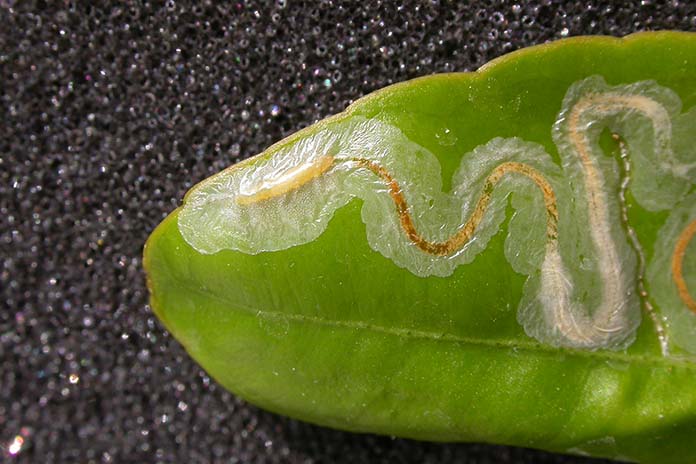 Although various garden insects are known as leaf miners, the most common are the larva of tiny flies that reside in and eat the leaf tissues, creating visible mines between its upper and lower layers.
Although various garden insects are known as leaf miners, the most common are the larva of tiny flies that reside in and eat the leaf tissues, creating visible mines between its upper and lower layers.
They are identified as garden pests as they cause immense damage garden plants. They can be effectively taken care of by either planting trap crops or encouraging natural parasites.
Scale
 Scales are sap-sucking garden pests that attach themselves with the host plants in order to feed. They secrete a waxy coating, which makes them look like fish scales. Usually, they appear as shell-like bumps, and before one can realize, they build up huge colonies and start destroying the plants.
Scales are sap-sucking garden pests that attach themselves with the host plants in order to feed. They secrete a waxy coating, which makes them look like fish scales. Usually, they appear as shell-like bumps, and before one can realize, they build up huge colonies and start destroying the plants.
Scales are serious pests in the garden, which can only be controlled using horticultural oils, as their waxy covering protects them well from contact insecticides.
Mealybugs
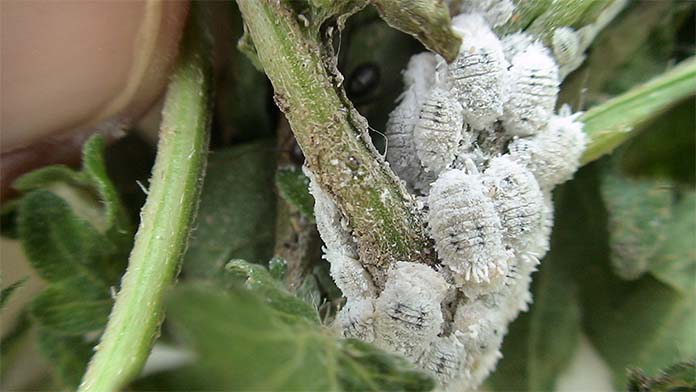 Found in moist and warm climates, mealybugs are unarmored scale pests in the garden that feed on the juices of plants and act as a vector of several plant diseases. While sucking plant juices, these garden pests secrete a powdery wax for their protection and require garden fungus identification. You should properly follow the indoor gardening tips to keep insects away.
Found in moist and warm climates, mealybugs are unarmored scale pests in the garden that feed on the juices of plants and act as a vector of several plant diseases. While sucking plant juices, these garden pests secrete a powdery wax for their protection and require garden fungus identification. You should properly follow the indoor gardening tips to keep insects away.
They are a major menace as they infest and damage various types of plants including mango, grapes, sugarcane, mulberry, pineapple, ferns, sunflower, papaya and orchids. The tenacity of these garden insects increases in the presence of ants, as ants protect from predators and parasites.
Thrips
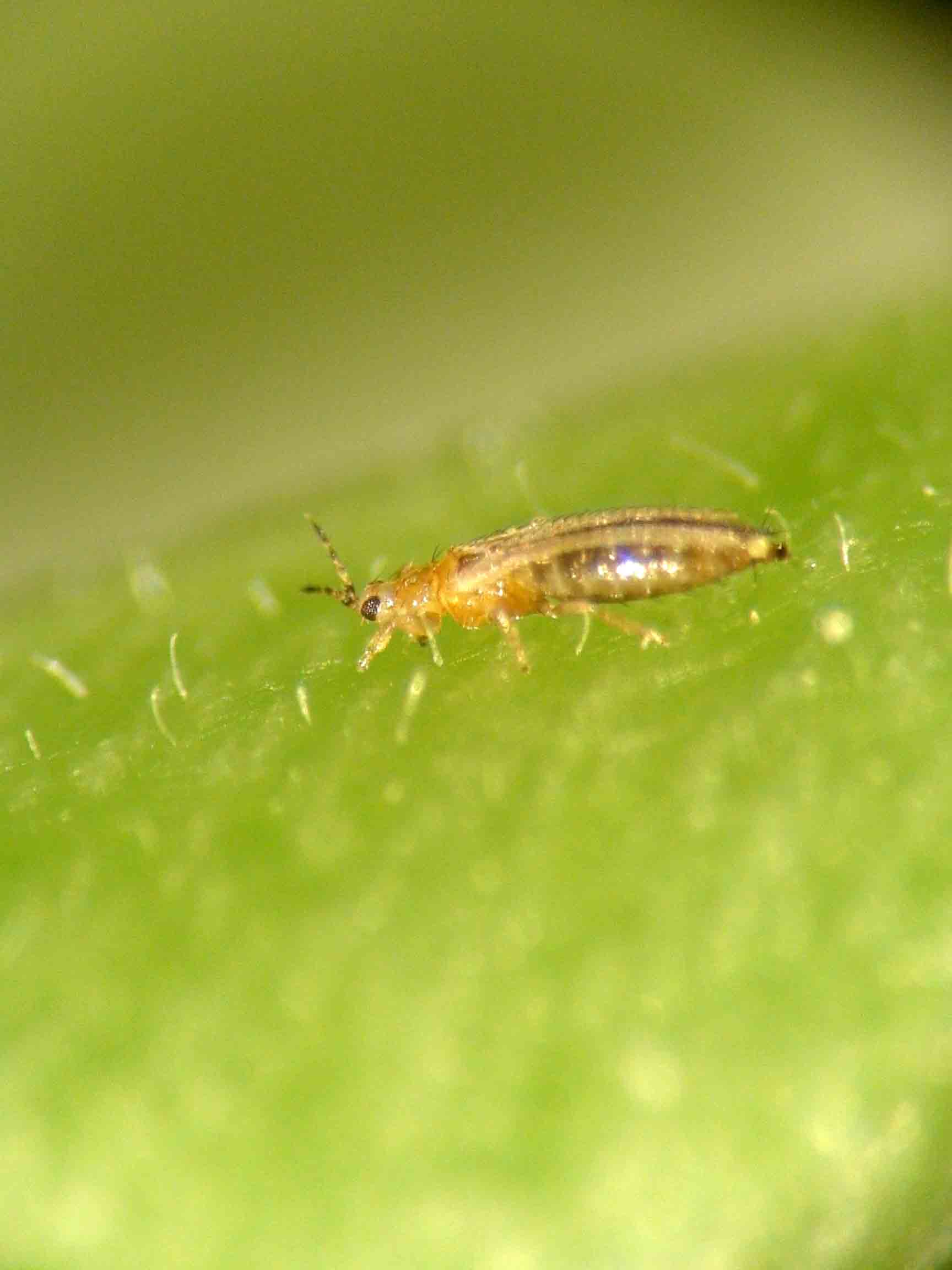 Thrips are fringe-winged minute insects that feed on a large variety of plants. They are one of the most commonly found pests in the garden and are considered hazardous. These garden pests feed on them; they cause discoloration, deformities, and reduced marketability of the crops.
Thrips are fringe-winged minute insects that feed on a large variety of plants. They are one of the most commonly found pests in the garden and are considered hazardous. These garden pests feed on them; they cause discoloration, deformities, and reduced marketability of the crops.
They are one of the prominent vectors of several plant diseases and are known for transmitting more than 20 plant-infecting viruses.
Aphids
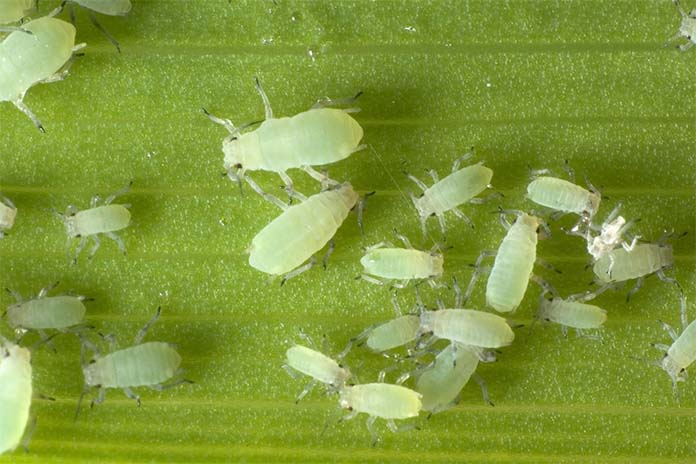 Also known as the plant lice, aphids are small, soft-bodied sap-sucking insects, which are one of the most destructive garden pests in temperate regions. They usually cluster on the tips of new growth and leaf undersides and starting sucking plant juices, which cause the leaves to become distorted and yellow.
Also known as the plant lice, aphids are small, soft-bodied sap-sucking insects, which are one of the most destructive garden pests in temperate regions. They usually cluster on the tips of new growth and leaf undersides and starting sucking plant juices, which cause the leaves to become distorted and yellow.
Aphids share a unique relationship with ants, as the later farms and protects them in order to extract honeydew secreted by the former. This process is known as tending, and it causes black sooty fungus to grow on leaves. Aphids reproduce at a rapid rate, which makes them quite menacing. They also spread diseases among plants.
Whiteflies
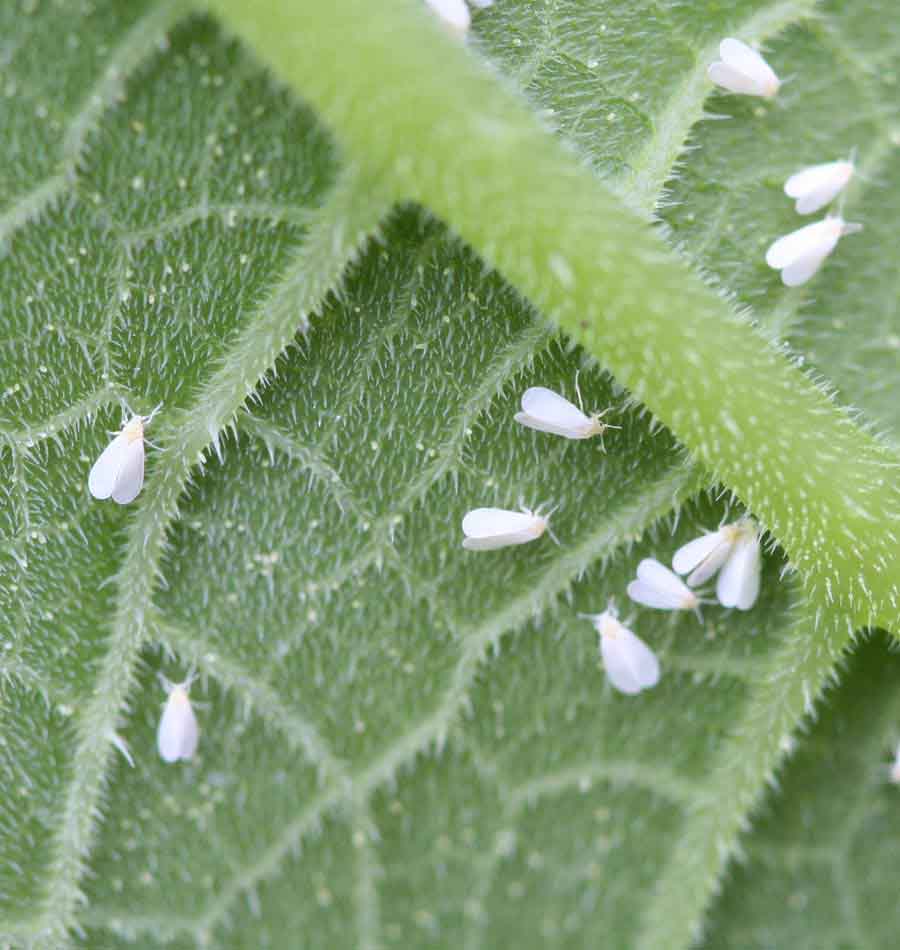 Whiteflies are tiny garden insects that commonly feed on the undersides of plant leaves and stems. These menacing garden pests carry and spread garden diseases, thereby posing as a great agricultural threat globally. These pests are really dangerous specially for flower plants.
Whiteflies are tiny garden insects that commonly feed on the undersides of plant leaves and stems. These menacing garden pests carry and spread garden diseases, thereby posing as a great agricultural threat globally. These pests are really dangerous specially for flower plants.
These flies feed by sucking into the phloem of plants and while doing so release a toxic saliva that decreases the plants’ overall turgor pressure. These hazardous pests in the garden are known for congregating in large numbers, which causes rapid degeneration in susceptible plants.
Controlling the outburst of whiteflies is a challenging problem, for these tiny garden pests have developed resistance towards chemical pesticides. Therefore, an integrated approach with biological control methods is required for achieving the same.
So, make sure that your garden is protected and identify garden pests.
Also Read: A Beginner’s Guide To Container Gardening
